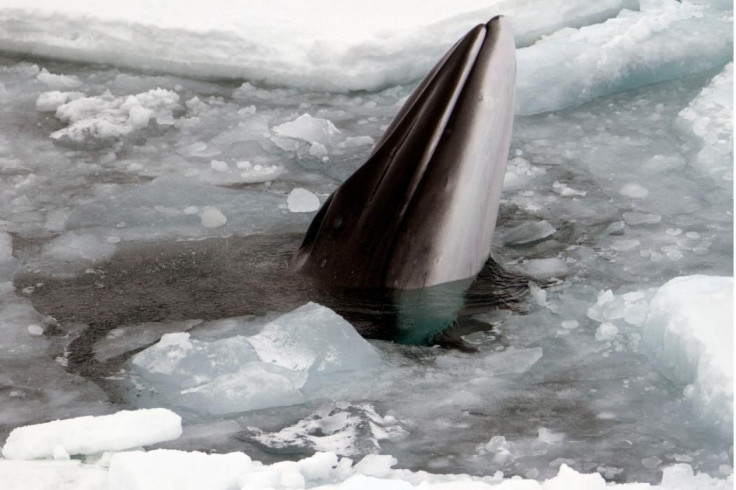'Ghost Gear' Blamed For The Death Of Pregnant Minke Whale

The carcass of a dead Minke whale has been found along the shores of Orkney Islands in Scotland.
The Scottish Marine Animal Strandings Scheme (SMASS) posted on their official Facebook page that the deceased cetacean was the latest victim of entanglement – a growing global concern that has been taking the lives of several marine species.
BBC said that the “ghost gear” was jammed inside the whale's baleen, or the filter-feeder system inside the whale's mouth. It was then dragged behind the animal, making it hard for it to swim or feed normally.
BBC News - Pregnant whale found tangled in 'ghost gear' in Orkney https://t.co/GWZ4DSH8h5 @strandings
— BBC North East Scot (@BBCNorthEast) October 8, 2019
A whale's baleen is made from keratin, the same protein that is found on human fingernails and hair. They use the baleen to collect krill, plankton and small fish, trapping them as they take up water to find food, said Whales.org.
Prior to its death, SMASS said that the whale had been in excellent body condition. It was also pregnant with a mid-term foetus, and its entanglement had led to an “exhausting last few hours of life.”
“Based on the flak bruising and lungs, it appears this creature lived stranded and drowned in the shoreline.
“In this case, entanglement cost the lives of two animals – the mother and her unborn, female calf,” the post added.
While SMASS acknowledged that some fishing nets and ropes are lost by accident, they find it hard to explain why some deliberately throw these materials back to the water when they can be “disposed of in a responsible way.”
“Lost, abandoned or discarded nets also represent a significant hazard to marine life,” it added.
Over the weekend we unfortunately received reports of yet another entangled whale - this time a minke off the west coast of Barra. This is the third fatal entanglement... https://t.co/b4LAqwpEg9
— SMASS (@strandings) May 21, 2019
Newsweek, through the World Animal Protection, reported that around 640,000 tons of ghost gear remains in the ocean year. These dilapidated fishing paraphernalia is responsible for killing, injuring and mutilating countless whales, dolphins, turtles, seals and birds every year.
It can also take roughly 600 years for it to break down, and over 817 marine life species are affected by ghost gear.
“To put the issue into perspective, a harpooned whale will die within six hours. A whale trapped in ghost gear will suffer, suffocate and starve for up to six months before eventual death. It's inhumane,” explained the website.
Operating since 1992, the SMASS is part of the Cetacean Strandings Investigation Programme (CSIP) funded by the Scottish and Westminster governments.
Its aim is to provide a systematic and coordinated approach of Scotland's vast marine life through collecting, analyzing and reporting data on whales, dolphins, turtles, seals and basking sharks that have been stranded on the country's shoreline.





















